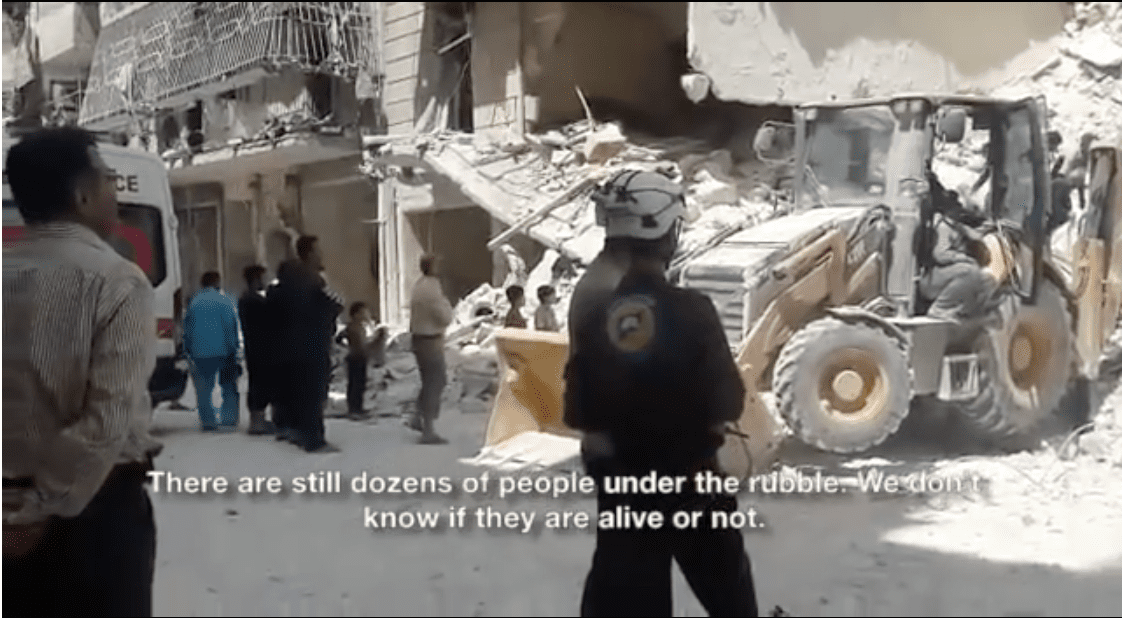Aleppo ceasefire provides brief respite: ‘We are just tired of it all’
AMMAN: A Russian–US, 48-hour ceasefire covering Aleppo went into effect […]
5 May 2016
AMMAN: A Russian–US, 48-hour ceasefire covering Aleppo went into effect at 12:01AM Damascus time on Thursday, ushering in a “cautious calm” in Syria’s second city after nearly two weeks of back-and-forth bombardment between rebels and regime forces that has killed over 250 civilians.
“We haven’t heard any bombings so far and there is a cautious calm in the city, Musab al-Khalaf, the head of the Local Council of Aleppo City, the opposition’s municipal government, told Syria Direct on Thursday.
“As part of our urgent efforts to de-escalate violence in Syria and reaffirm the Cessation of Hostilities nationwide, the United States and Russia concluded arrangements [late Tuesday] to extend this effort to Aleppo province, including Aleppo city and its surrounding areas,” Mark C. Toner, the deputy spokesman for the US Department of State, said in a press statement Wednesday night after the ceasefire in Aleppo had gone into effect.
Russian state news agency TASS reported that the ceasefire applies to “the Syrian city of Aleppo,” but did not mention the rest of the province.
Since the ceasefire went into effect “we have seen an overall decrease in violence in these areas, even though there have been reports of continued fighting in some locations,” said Toner.
On the ground in Aleppo city, doctors say they see this 48-hour period as “an essential opportunity for the wounded and medical personnel to rest,” Dr. Hamza al-Khatib, the director of the al-Quds hospital that was partially destroyed by regime bombardment last week, told Syria Direct on Thursday.

An airstrike of unknown provenance struck the a-Quds hospital on April 27, killing at least 55 people, including one of the last pediatricians in Aleppo city.
The 34-bed al-Quds Hospital, located in rebel-held west Aleppo’s Sukari neighborhood, was “the main referral center for pediatrics” city-wide, Doctors Without Borders (MSF), which has supported the hospital since 2012, said in a statement the next day.
“We as doctors will take advantage of this ceasefire to repair the hospitals and fortify them, beginning with the al-Quds hospital and then the rest of them,” said al-Khatib.
“We haven’t suffered from a lack of medical supplies, but we want these massacres to stop. If the regime bombardment doesn’t stop, we will deplete our reserves of medical supplies.”
The newest ceasefire is “pursuant to the terms of the arrangements established in Munich in February 2016,” said Toner in Wednesday’s State Department press statement, referring to the exclusion of Jabhat a-Nusra and the Islamic State from the cessation of hostilities.
“There are such complicated mixtures of terrorists and representatives of the opposition [in Aleppo] that, of course, the situation [with the truce regime observance] is potentially very fragile,” Russian state media agency TASS on Thursday quoted Kremlin spokesman Dimitry Peskov as saying.
Residents of rebel-held Aleppo districts explain that despite the ceasefire, most trapped civilians are not fleeing because there is danger at and beyond the perimeter of the city.
“There are a few cases of people fleeing [the city] via the Castello road, but Kurdish and regime snipers are still targeting the area, leading to a number of civilian victims on the road,” Sharif al-Halabi, a civilian activist inside rebel-controlled Aleppo city, told Syria Direct on Thursday.
“A lot of civilians prefer death in Aleppo over leaving [the city] since there isn’t any safe place to take shelter in,” said al-Halabi.
“People have gotten used to the barrel bombs and death; we are just tired of it all.”







